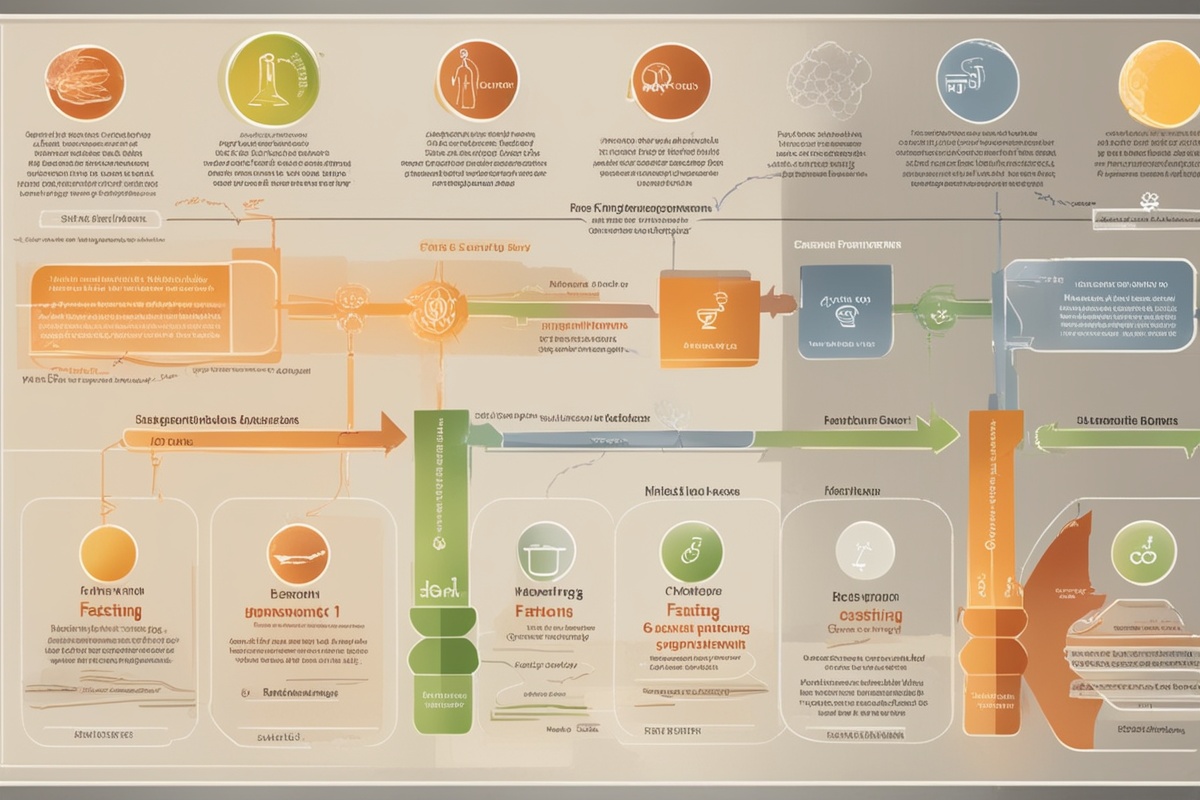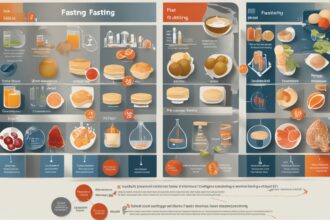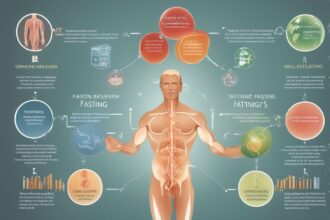Hey there, health enthusiasts! If you’re into health fasting—whether it’s intermittent fasting, water fasting, or another method—you’ve probably wondered why some people seem to thrive on it while others struggle. Could it be more than just willpower or diet choices? Spoiler alert: your genetics might play a bigger role than you think! In this deep dive, we’re unpacking the fascinating connection between fasting and genetics, exploring how your DNA influences the benefits and challenges of fasting for health. We’ll blend scientific insights with practical tips to help you tailor your fasting journey. Let’s get started on understanding how your unique genetic makeup could be the key to unlocking the full potential of fasting benefits.
What Is Health Fasting, and Why Does It Matter?
For the uninitiated, health fasting refers to voluntarily abstaining from food (and sometimes drink) for a specific period to promote physical, mental, or spiritual well-being. Popular forms include intermittent fasting (like the 16:8 method, where you fast for 16 hours and eat during an 8-hour window), prolonged fasting (lasting 24+ hours), and religious fasts like Ramadan. The buzz around fasting for health isn’t just hype—research shows it can support weight loss, improve metabolic health, and even enhance longevity (Mattson et al., 2017). But here’s the catch: not everyone responds to fasting the same way. Some lose weight effortlessly, while others feel sluggish or irritable. This is where genetics enters the chat, offering clues about why fasting outcomes vary so widely.
How Genetics Shape Your Body’s Response to Fasting
Your DNA is like a blueprint for how your body operates, and it turns out that certain genes influence how you handle health fasting. Genes related to metabolism, hunger signals, and stress responses can determine whether fasting feels like a breeze or a battle. For instance, variations in the MC4R gene, which regulates appetite, can make some individuals more prone to hunger pangs during fasting (Loos et al., 2008). Similarly, genes tied to insulin sensitivity, like TCF7L2, impact how your body manages blood sugar levels when you’re not eating (Grant et al., 2006). This means that while fasting might stabilize blood sugar for one person, it could cause dips or spikes for another. Understanding these genetic factors can help explain why a one-size-fits-all approach to fasting for health doesn’t always work.
The Role of Epigenetics in Fasting Benefits
Here’s where things get even cooler: fasting doesn’t just interact with your static DNA—it can influence how your genes are expressed through a process called epigenetics. Epigenetics is like a dimmer switch for your genes, turning them “on” or “off” based on lifestyle factors like diet and stress. Studies suggest that health fasting can trigger epigenetic changes that promote cellular repair and reduce inflammation (de Cabo & Mattson, 2019). For example, fasting may activate sirtuins, a family of proteins linked to longevity, by altering gene expression. This means that your fasting routine could literally “reprogram” how your body fights aging and disease at a molecular level. Pretty amazing, right?
Genetic Predispositions to Fasting Challenges
While the benefits of fasting for health are exciting, it’s not all smooth sailing for everyone. Genetic predispositions can make fasting tougher for some. Let’s break down a few common challenges tied to your DNA:
- Hunger Sensitivity: Variations in genes like LEP (leptin) can mess with hunger and satiety signals, making fasting feel unbearable (Farooqi et al., 2007).
- Energy Crashes: If you have certain variants in genes tied to glucose metabolism, you might experience fatigue or brain fog during fasting.
- Stress Response: Genetic differences in cortisol production can amplify stress or anxiety when you’re not eating, as fasting is a mild stressor on the body.
- Lipid Metabolism: Some people’s genes make it harder to switch to burning fat for fuel during fasting, slowing down weight loss benefits.
Recognizing these potential hurdles doesn’t mean you should ditch fasting—it just means you might need a more personalized approach to make it work for you.
Personalizing Your Health Fasting Journey with Genetic Insights
So, how do you use this genetic knowledge to optimize your health fasting experience? While you can’t change your DNA, you can adapt your fasting strategy to align with your body’s unique needs. Genetic testing services like 23andMe or AncestryDNA can provide raw data on certain health-related traits, though they don’t specifically analyze fasting responses. For deeper insights, consult a healthcare provider or genetic counselor who can interpret your results in the context of nutrition. Meanwhile, here are some actionable tips to tailor fasting to your potential genetic profile:
- Start Slow: If hunger hits hard, ease into fasting with shorter windows (like 12:12) before jumping to stricter protocols.
- Monitor Blood Sugar: Use a glucose meter to track how fasting affects your levels, especially if you suspect insulin sensitivity issues.
- Hydrate and Electrolyte Up: Genetic tendencies toward energy dips can be mitigated by staying hydrated and balancing electrolytes with salt or mineral supplements.
- Choose Nutrient-Dense Meals: When breaking your fast, prioritize foods that stabilize blood sugar, like healthy fats and protein, to support metabolic genes.
- Listen to Your Body: If fasting feels overly stressful, scale back—your genetic stress response might need a gentler approach.
By experimenting with these strategies, you can find a fasting rhythm that works with, not against, your genetic wiring. It’s all about trial and error with a dash of self-awareness!
The Future of Fasting and Genetic Research
The intersection of health fasting and genetics is still a budding field, but the future looks promising. Researchers are diving deeper into how specific gene variants predict fasting outcomes, which could lead to truly personalized fasting plans. Imagine a world where a simple DNA test tells you the exact fasting schedule, duration, and meal timing that maximizes your health benefits! Studies are also exploring how fasting-induced epigenetic changes might prevent chronic diseases like diabetes or heart disease (Longo & Mattson, 2014). While we’re not quite there yet, staying informed about these advancements can help you adapt your fasting for health as science evolves. For now, combining current research with self-experimentation is your best bet for success.
As we’ve explored, the link between fasting and genetics is a game-changer for anyone looking to optimize their health fasting routine. Your DNA isn’t just a background player—it actively shapes how your body responds to fasting, from metabolism and hunger to long-term benefits like cellular repair. While genetic testing and research are still catching up, you can start personalizing your fasting journey today by listening to your body and tweaking your approach with practical tips. Remember, fasting for health isn’t about forcing yourself into a rigid mold; it’s about finding what works for your unique genetic makeup. So, experiment, stay curious, and let’s keep the conversation going—drop your fasting experiences or questions in the comments below!
References
- de Cabo, R., & Mattson, M. P. (2019). Effects of intermittent fasting on health, aging, and disease. New England Journal of Medicine, 381(26), 2541–2551.
- Farooqi, I. S., Bullmore, E., Keogh, J., Gillson, J., O’Rahilly, S., & Fletcher, P. C. (2007). Leptin regulates striatal regions and human eating behavior. Science, 317(5843), 1355.
- Grant, S. F., Thorleifsson, G., Reynisdottir, I., Benediktsson, R., Manolescu, A., Sainz, J., … & Stefansson, K. (2006). Variant of transcription factor 7-like 2 (TCF7L2) gene confers risk of type 2 diabetes. Nature Genetics, 38(3), 320–323.
- Cell Metabolism, 19(2), 181–192.
- Loos, R. J., Lindgren, C. M., Li, S., Wheeler, E., Zhao, J. H., Prokopenko, I., … & Barroso, I. (2008). Common variants near MC4R are associated with fat mass, weight and risk of obesity. Nature Genetics, 40(6), 768–775.
- Mattson, M. P., Longo, V. D., & Harvie, M. (2017). Impact of intermittent fasting on health and disease processes. Ageing Research Reviews, 39, 46–58.






